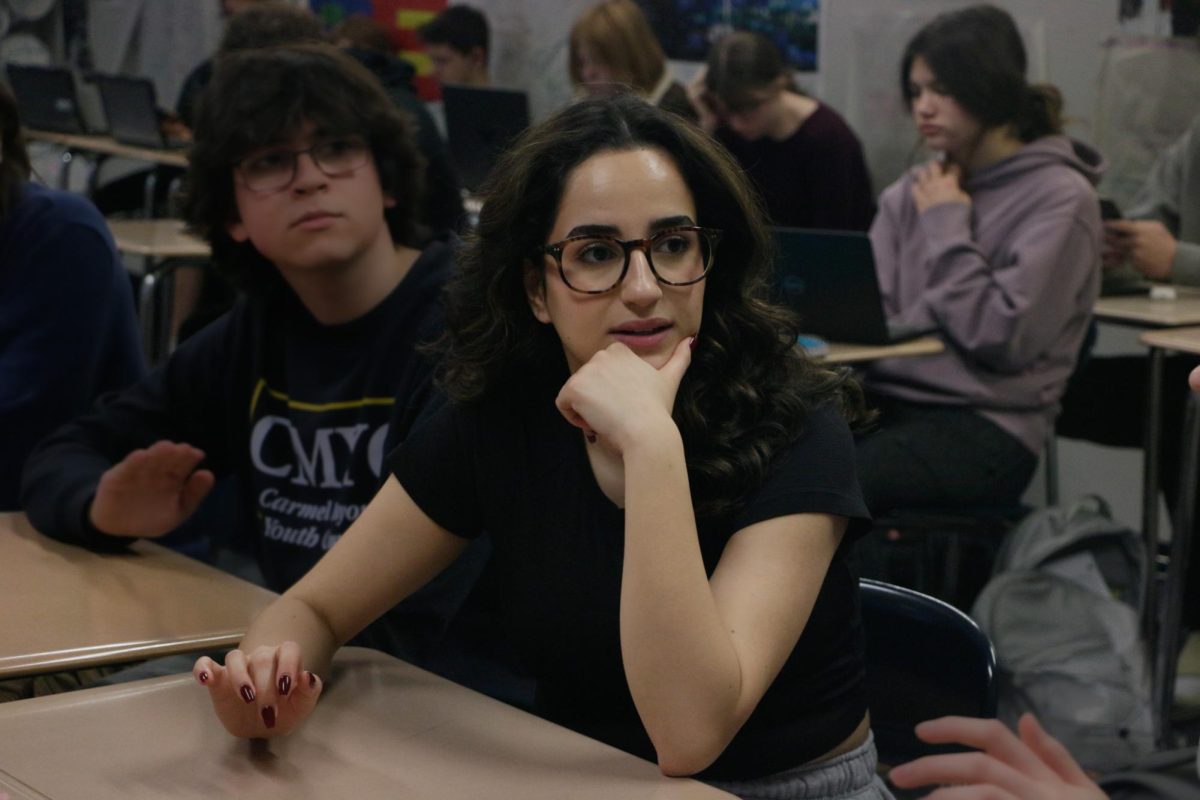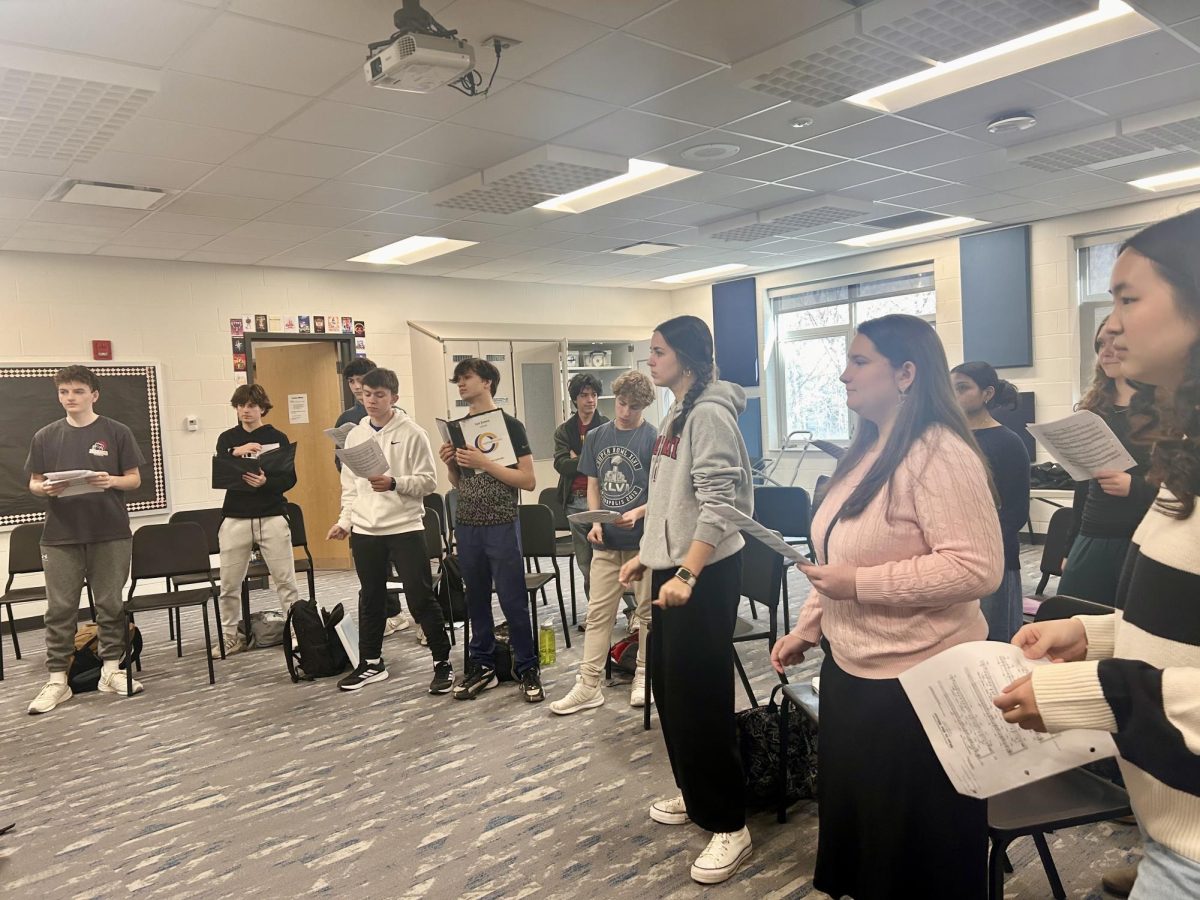Extracurricular programs, class and staff sizes remain constant with passage of referendum
By Patrick Bryant
<pbyrant@hilite.org>
On the night of May 4, Chris Wilner, marching band drum major and senior, said there was no better feeling than watching the election results, which showed 58 percent of Carmel residents were in support of the referendum.

“I was overjoyed,” Wilner said via e-mail. “I’m so happy to hear that the community is behind its school system and realizes what we have saved because of this referendum.”
Five districts in the Indianapolis area had proposed referendums this year. As for Carmel’s referendum, which will be in place for the next seven years, for the students, teachers and the school in general, the reasons for celebrating have both similarities and differences.
Student Reaction
For Wilner, the night was a big victory for the CHS marching band, of which he is drum major. The passing of the referendum, he said, will allow the band’s instructors to keep their jobs and the organization itself to run at its usual level, something Wilner said he is very much looking forward to.
“Next year looks to be just as great (as this year), if not better,” Wilner said. “It’s sad I won’t be able to be a part of it, but I know that with this referendum passed, the Carmel band program will continue to grow and continue the standard of excellence it has in the past.”
Aside from the marching band programs, class sizes stand a better chance of remaining the same for students. Along with that, other extracurricular activities in jeopardy of ending will have a better chance to be saved.
Even though he is in his final few weeks of his CHS career, Wilner said the passing of the referendum was something that meant a lot to him.
“It means the world to me,” he said. “I remember looking up to those who have passed through CHS’ ranks when I was little. To think that now we can be those examples because of what a strong and successful school we are, it’s a great feeling.”
Administrative Reaction
To David Bardos, social studies department chairperson, the passing of the referendum showed what a special place CHS is in the eyes of the community.
According to Bardos, it’s a telling statistic that only one-third of the Carmel population has a child that attends a Carmel school, yet almost 60 percent of the community supported this referendum.
Bardos said the success of the referendum not only allows the district to financially continue to operate as usual, but it also is a “psychological boost” for the teachers.
“We’ll definitely be able to maintain our product,” he said. “The subtle message is that we, as a community, support our schools, and psychologically it was great for teachers. It’s that subtle vote of confidence for teachers that they’re doing a good job.”
Bardos said the major positive is class sizes can stay the same because of what negative effects there would be if they didn’t.
“With larger numbers in the classroom, it’s tougher for teachers to maintain the same level of excellence,” he said.
For Bardos, who will retire this year after over 30 years as a CHS teacher, he said he is most happy to know that the school’s financial future will be more secure.
“I just hope CHS will continue to be the great school that I’ve been a part of,” he said. “One generation builds for the next.”
Teacher Reaction
One of the most publicized reasons for supporting the referendum was the number of teaching positions that would be saved. For social studies teacher Peter O’Hara, the passing of the referendum was a strong message from community members that they support both the school and the teachers.
“(The support) shows the value of education in the community,” O’Hara said. “We know now that we have enough (money) to operate.”
O’Hara said although he doesn’t know exactly how the money will be spent yet, the priority should be that it “stay in the classroom.”
“The more that money is visible there – that’s what the people (that supported the referendum) want to see,” he said. “I have confidence that this money will be spent responsibly.”
O’Hara said although saving teaching jobs was very important, ensuring the future of the school that students rely on for their education is the real victory.
“It wasn’t just about saving jobs,” he said. “That was a big part of it, no doubt, but the fact of the matter is, we like to work with kids and we always are thinking about the futures of the young people we serve.”































![AI in films like "The Brutalist" is convenient, but shouldn’t take priority [opinion]](https://hilite.org/wp-content/uploads/2025/02/catherine-cover-1200x471.jpg)













































![Review: “The Immortal Soul Salvage Yard:” A criminally underrated poetry collection [MUSE]](https://hilite.org/wp-content/uploads/2025/03/71cju6TvqmL._AC_UF10001000_QL80_.jpg)
![Review: "Dog Man" is Unapologetically Chaotic [MUSE]](https://hilite.org/wp-content/uploads/2025/03/dogman-1200x700.jpg)
![Review: "Ne Zha 2": The WeChat family reunion I didn’t know I needed [MUSE]](https://hilite.org/wp-content/uploads/2025/03/unnamed-4.png)
![Review in Print: Maripaz Villar brings a delightfully unique style to the world of WEBTOON [MUSE]](https://hilite.org/wp-content/uploads/2023/12/maripazcover-1200x960.jpg)
![Review: “The Sword of Kaigen” is a masterpiece [MUSE]](https://hilite.org/wp-content/uploads/2023/11/Screenshot-2023-11-26-201051.png)
![Review: Gateron Oil Kings, great linear switches, okay price [MUSE]](https://hilite.org/wp-content/uploads/2023/11/Screenshot-2023-11-26-200553.png)
![Review: “A Haunting in Venice” is a significant improvement from other Agatha Christie adaptations [MUSE]](https://hilite.org/wp-content/uploads/2023/11/e7ee2938a6d422669771bce6d8088521.jpg)
![Review: A Thanksgiving story from elementary school, still just as interesting [MUSE]](https://hilite.org/wp-content/uploads/2023/11/Screenshot-2023-11-26-195514-987x1200.png)
![Review: "When I Fly Towards You", cute, uplifting youth drama [MUSE]](https://hilite.org/wp-content/uploads/2023/09/When-I-Fly-Towards-You-Chinese-drama.png)
![Postcards from Muse: Hawaii Travel Diary [MUSE]](https://hilite.org/wp-content/uploads/2023/09/My-project-1-1200x1200.jpg)
![Review: "Ladybug & Cat Noir: The Movie," departure from original show [MUSE]](https://hilite.org/wp-content/uploads/2023/09/Ladybug__Cat_Noir_-_The_Movie_poster.jpg)
![Review in Print: "Hidden Love" is the cute, uplifting drama everyone needs [MUSE]](https://hilite.org/wp-content/uploads/2023/09/hiddenlovecover-e1693597208225-1030x1200.png)
![Review in Print: "Heartstopper" is the heartwarming queer romance we all need [MUSE]](https://hilite.org/wp-content/uploads/2023/08/museheartstoppercover-1200x654.png)


